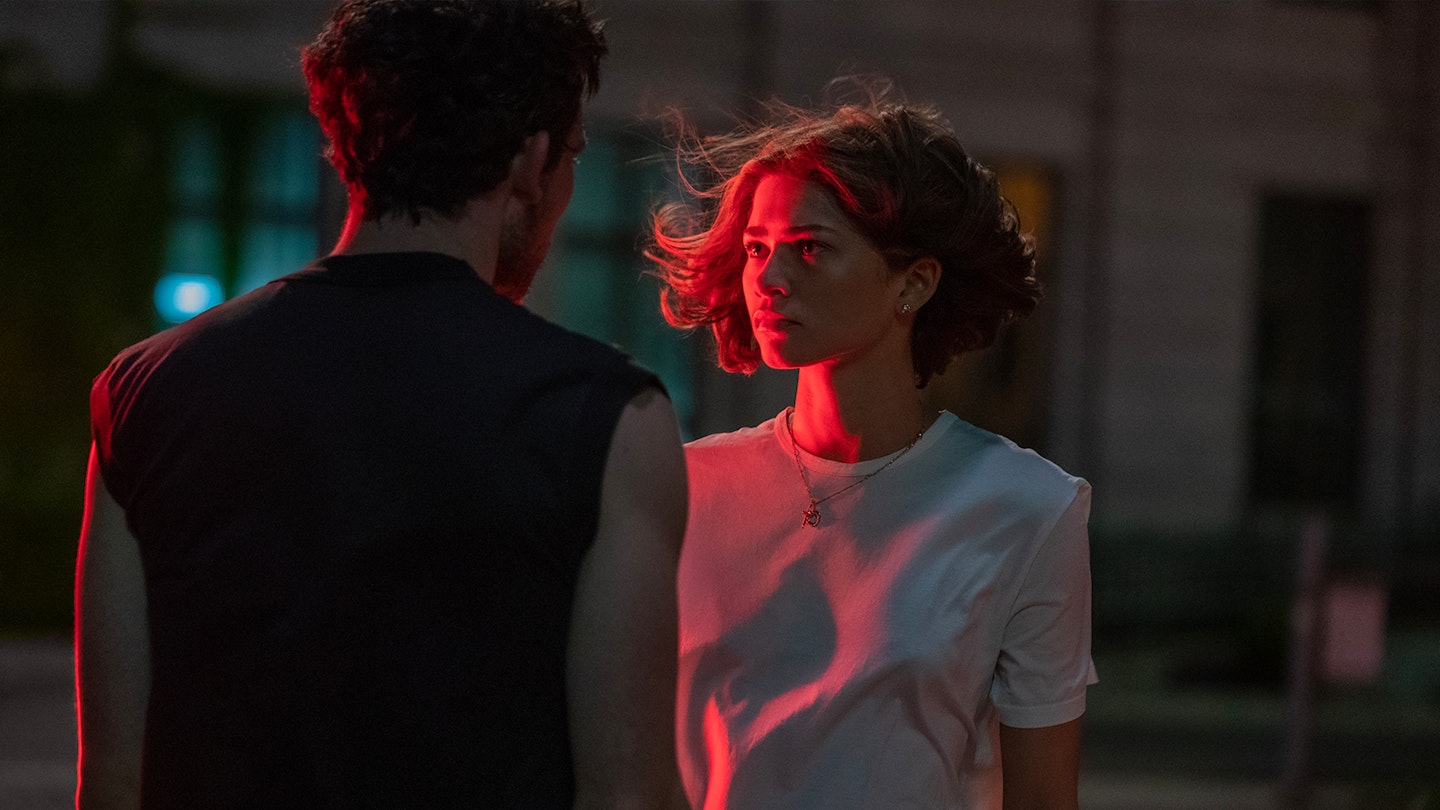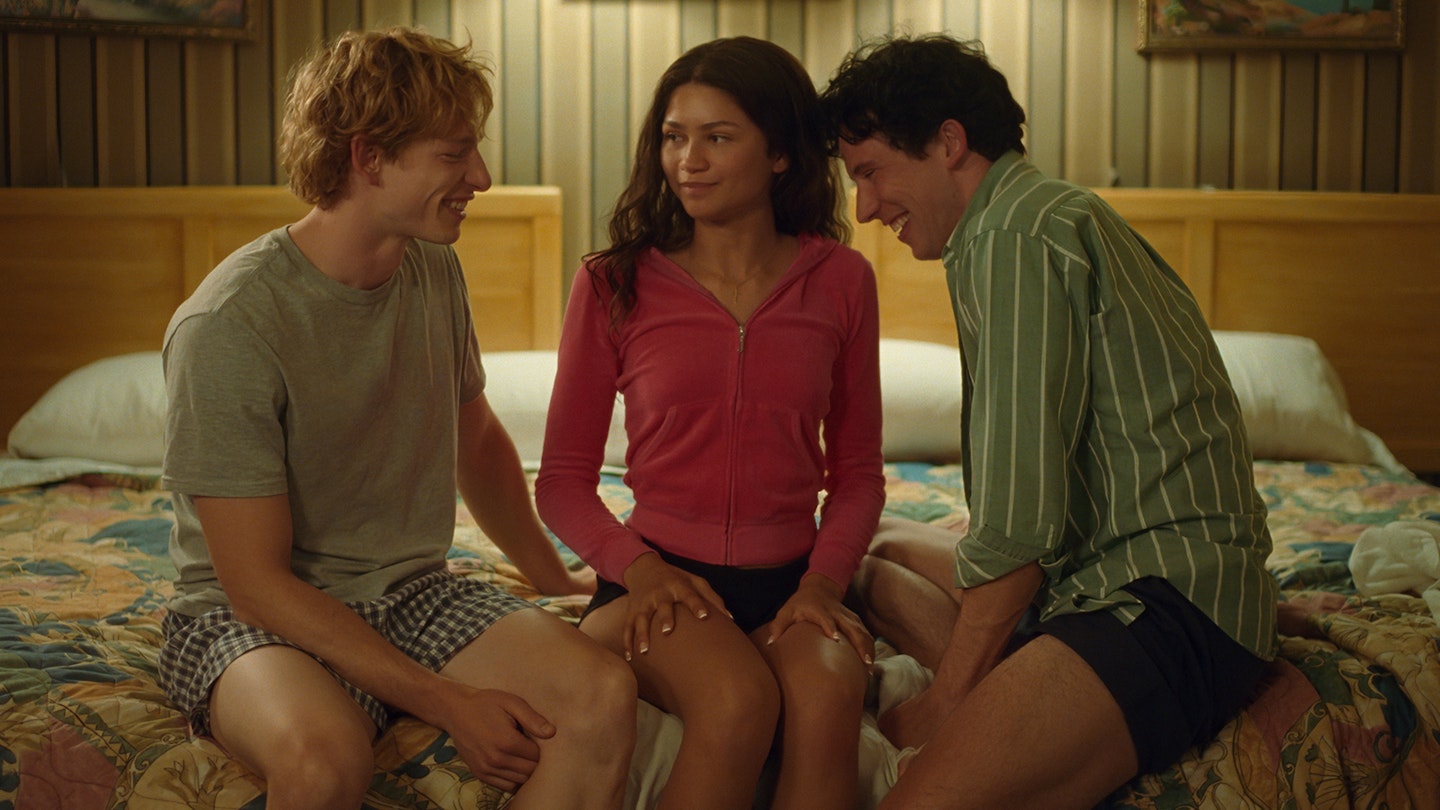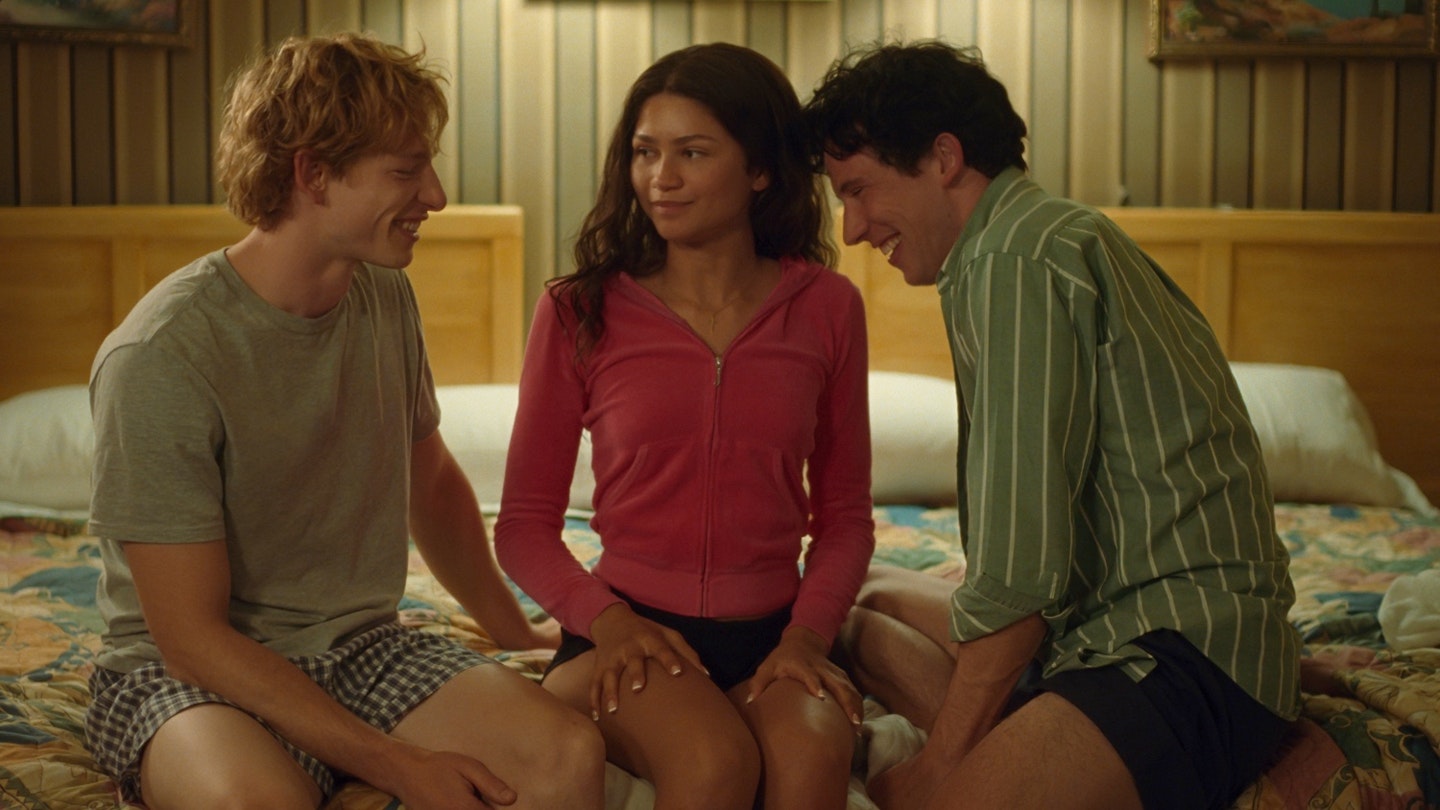Skin glimmers in Challengers. Tongues entwine, sweat drips. Dicks dangle. Spit is spat. In faces.
Luca Guadagnino likes to get up close and personal. Of late he has blessed us with Call Me By Your Name’s juicy peach erotica, Bones And All’s ravenous finger-munching cannibalism and Suspiria’s, well, everything. But even by the director’s standards, Challengers is one tactile piece of work. Its cameras survey and worship the human body, its strength, its sexiness and its vulnerabilities, but it is supremely physical across the board, with bones crunched, tennis-balls pounded and racquets smashed to smithereens. Most destructive of all, though, are the brutal bouts of fuckery spilling out of the bedroom and onto the court, broken relationships broken further across the net. The tennis is violent. The hatred is delicious. The film is a lot.

Best friends Patrick (Josh O’Connor) and Art (Mike Faist) are shabby young upstarts when they simultaneously pursue rising superstar Tashi (Zendaya), and when she promises her phone number to whoever wins the next match, their groins can barely handle it. With their libidos incentivised, the off-court competition begins too, and all the obsession, the jealousy, the spite, the resentment that comes with it, as the boys’ friendship is ripped apart. That early romantic entanglement affects the threesome’s every second thereafter, resulting in Darwinian one-upmanship, fractured allegiances, seething vendettas and gladiatorial tennis, Guadagnino and screenwriter Justin Kuritzkes presenting a vicious treatise on uncompromising desire, exploring just what we sacrifice when we commit to getting what — or who — we want.
Challengers is exquisitely put together, a work of finely tuned precision.
With the time-hopping film consistently revisiting a present-day grudge-match fuelled by a decade of acrimony, Patrick and Art smash tennis balls like they’re smashing each other’s heads in. O’Connor’s cocksure Patrick, a maverick player shackled by his own arrogance, wears the gleaming grin of a man whose charm has rarely let him down. Faist’s Art is a purer, straighter, more sensitive sportsman, somewhat on the backfoot but fiercely dedicated. And as the unwaveringly driven Tashi, Zendaya gives a performance of subtle power, showing us just what she’s made of, delivering Kuritzkes’ venomous putdowns with no mercy, wielding withering glances to lethal effect: if looks can kill, she’s a mass murderer.

Indeed, sometimes Guadagnino ditches dialogue and lets these three extraordinary faces do the talking, deploying slow-motion to elevate what would otherwise be fleeting moments, giving them grandeur, laying the characters’ souls bare, with an intimacy that feels intrusive. Trent Reznor and Atticus Ross’ hi-energy techno-club score, meanwhile, adrenalises it all, bringing to the fore the sheer rush of what’s going on as tensions, hormones and ambitions duke it out, so that even shots of these people walking through corridors feel mythic.
Challengers is exquisitely put together, a work of finely tuned precision, and with no sport for sport’s sake. “You’re playing percentage tennis. Waiting for me to fuck up,” Patrick says to Art at one point, not referring to the game at all, and that’s the nub of it — there is no difference between what’s happening on or off the grass. They’re all permanently on heat. There is so much tennis here, yet it doesn’t feel like a sports movie. Every bounce of the ball is rooted in character. Every line twists the knife further. Every scene is charged. Not an edit is wasted, emotions — and history — played out with every whack of the racquet, every serve like a slap in the face. Every second engineered to further the mindfuck. All three characters are gluttons for punishment, the film pondering the cost of it all, what we can be reduced to along the way, and what it’s like to simultaneously love and detest somebody. It delights in bitterness.
Throughout, Guadagnino is on truly mischievous form. This is gleeful, impish filmmaking, but make no mistake: the stakes here feel like life or death, culminating in a climax so exhilarating, you forget to breathe. It’s a vibrating tribute to the buzz of anticipation, of conquest, of sacrifice, betrayal, regret, failure. The whole damn lot; the thrill of it all. It throbs.





